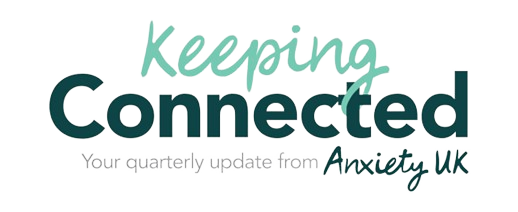Pet Anxiety: worries around responsibility and what our therapists advise
We often receive queries about anxiety linked to getting a new pet; most commonly a puppy. You’ve done your research, know you’re ready for a pet but then just before or as soon as the pet arrives you feel very anxious. You’re overwhelmed, scared and panicking and feel the need to return the pet or give it up.
We asked our participation group to share their personal experience and our Anxiety UK Approved Therapists to provide some insight and advice.
Here are the stories from those with similar experience…
“I would love a dog and I go and view puppy’s however I am then overwhelmed with a feeling of panic and being trapped … Strangely 15 years ago I suffered the same worries when buying a horse. I bought him and have never regretted it. I worry if I actually take a puppy home I will regret it. I am glad to know I am not the only person who feels like this” – Alana, Participation Group member
“I have always experienced anxiety in my life and I ultimately realised that I was feeling more anxious when I was also feeling lonely. So I decided after research, to adopt a cat. I got my cat 3 months ago and it has been a roller coaster of emotions! I didn’t realise before how much attention a cat needed and so I had my anxiety level exploding the following couple of days. Certainly having a pet is a great responsibility, however on the other hand, it gave me the chance to challenge myself into nurturing something, and in the long run this gave my more confidence as I would have never believed how strong I could be.” – Emanuela, Participation Group member
“My girlfriend and I decided to get a dog which was a big decision and took a lot of thought around which dog was best for us. We ended up getting a beautiful Border collie and we called her Lacy. But for me personally, this was a very nervous and anxious time. Struggling with Anxiety, I found myself to be overthinking the whole situation. But my mental health has massively improved since having a dog and I would recommend it to anyone if they believe they are ready to make the step! A dog is really a man’s best friend!” – James, Participation Group member
“I got a puppy back in 2020 when I was in a pretty bad place anxiety place. Initially I thought she was a really bad idea but in the end after a month or so she’s really helped my anxiety. Forcing me to go out one a day – especially when I was unemployed – was a massive benefit.” – Laura, Participation Group member
Read what our therapists have to say…
“I had a client with this dilemma quite recently, they brought up that their partner and 2 children wanted a pet and between them they had already decided it was a great idea … Thinking about it made the client anxious, having to say no made them feel anxious, the thought of looking after and being responsible for a pet made them feel anxious. By unpicking their feelings around this issue my client was able to identify a pattern where they felt the last to be consulted … and this in turn helped them identity an automatic negative thought process … The outcome has been that they did indeed get a pet but she was included in the final decision, putting in place boundaries of responsibility and having a final say and the pet has been a success for everyone concerned.” – Kimberly, AUK Approved Therapist
“If you’re finding it hard to get used to the responsibility of owning a pet, or you’re struggling with their behaviour it can lead to a feeling that you can’t cope, and thoughts of giving your pet up. Whilst thinking like this is relatively common, these thoughts often lead to a great deal of guilt and shame. Remember that you are allowed to have thoughts like this. Anyone would look at ways of solving a situation that’s overwhelming, and this may include thinking of giving your pet up. You haven’t let your pet down; you’ve just had a normal human response to a stressful situation.” – Chris, AUK Approved Therapist
“I live with anxiety and I slowly began to realise that it wasn’t about how much the dog was taking from me but more about how much he was giving to me. Thanks to the dog and the time spent in the moment watching him learn and try new things I was beginning to feel more centred, more present and much more relaxed.” – Fiona, AUK Approved Therapist
Top tips from our therapists…
Gradual exposure:
- – Go for walks, spend time in the park next to your place, observe dogs and their owners.
- – Contact, talk to the dog owner, ask for tips, ask about their dogs’ behaviour, pet the dogs, play with them if possible.
- – If you have friend with dogs/pets, go visit them, see how the environment is, notice how they deal with their pets at home. Talk to your friends about your desire to get a pet.
- – Read a lot about the dog/pet breed you are wishing to get, the more you know in advanced about the pet and how to take care of them the better.
- – You can offer to have your friends’ pet when they are going on holiday, this way you will have a good time with the pet and immerse yourself in that full experience as how it would be to have a pet yourself.
Change the way you think:
- – Recognise possible demands for certainty and transforming them into preferences e.g. “I strongly prefer that my pet never gets ill, but I will deal with it if it happens”
- – Check in with yourself. If you are feeling anxious reach out. Having a puppy is a huge responsibility, but it’s also something to be enjoyed.
- – You may feel overwhelmed and unsure if you can’t cope sometimes. This may lead to considering giving up your pet. These thoughts are a normal response to stress, it doesn’t make you a bad pet owner.
- – With a new pet, take it one day at a time. A problem happening today can be worked on and does not mean it will always be an issue.
- – If for any reason you did choose to give up your pet, remember that you made the decision not only for you but for the best interests of your pet. Perhaps when the time is right, you’ll find the right pet and the right situation for you.
- – Contacting your vet regarding your dog’s needs, consequences and plans can be helpful
- – What is it about the dog that is causing those feelings of not being able to do it? When have we felt these types of feelings in the past? Look at connection and bonding and responsibilities as words and the feelings these words evoke and then examine what may be going on.







